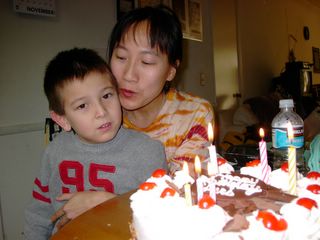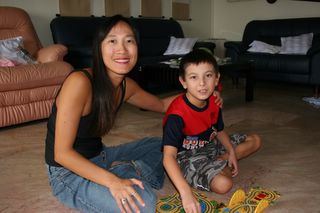Recently, Singapore celebrated its four decades of existence by broadcasting the achievements of Singaporeans from all walks of life in the MRTs. While these images appear to project an inclusive vision of Singapore, they do not include individuals with various types of disabilities, particularly those with developmental disorders such as autism. On the surface, it may seem obvious why one would exclude individuals with disabilities from a discussion on achievement. However, I would like to implore my readers to open their minds to an alternative definition of “achievement” – one that would embrace individuals with disabilities.
What are the achievements of individuals with disabilities?
The achievements of individuals with disabilities can be found in their perseverance in carving a niche in a world that makes little accommodations for their difficulties and sensibilities. For them, every step of the way, which we take with ease and for granted, is paved with hardship and difficulty. Yet, they continue to take these baby steps.
I would know because I have been trudging on this rocky path with Sebastien, my nine-year-old son, since he was diagnosed with autism at the age of two. Because of his autistic condition, my son’s mind, with regard to social norms and interactions with others, was akin to an empty slate. While typical children are seemingly preprogrammed to acquire social expectations and language, Sebastien needed to be taught about them from scratch.
Our path forward has been a painstaking journey in which steps forward are often followed by multiple steps backwards. Yet, however painstaking these steps have been for me, this journey has been infinitely harder for Sebastien. Lacking the trust in his limited language capacity, Sebastien has to confront his fear of the unknown everyday, never knowing what is happening for sure until it is actually taking place. The sights and sounds that overwhelm his senses are also challenges that he confronts on his own.
Nonetheless, over the last seven years, I have watched him take those baby steps, get lost amidst the detours of aggression and retrace his footsteps onto the right path. He has certainly come a long way since his initial diagnosis. The following are just a few examples:
At two years of age, Sebastien could not make eye contact with anyone for a fleeting second. In avoiding the human gaze, Sebastien had erected a safe fortress to protect himself from the unpredictability of human beings. Today, he can maintain a sustained gaze with anyone. He possesses a limited curiosity about human beings around him and acknowledges them with his brief looks and even hugs and kisses, when prompted.
Starting from a place of virtual muteness, Sebastien now speaks in full sentences with prompts, along with one- to two-word utterances spontaneously. Instead of flipping through books from cover to cover at the speed of light, he now willingly labours over each word on the page.
While the prospect of visiting new places used to fill his two-year-old self with fear and anxiety, Sebastien is now able to go to diverse settings that would be considered sensory nightmares for most autistic children. He had mingled with crowds amidst the blaring sounds of slot machines and flashy lights of Las Vegas. In Singapore, he blends into the flow of human traffic that surges in and out of the MRTs during peak hours.
Finally, the two-year-old child who used to tantrum and engage in aggression when asked to do academic work has transformed into someone who embraces “homework” as one of his preferred activities.
Although Sebastien’s achievements may pale in comparison to those of his typical counterparts, they challenge Singaporeans as a society to rethink the meaning of “achievement.” Through their efforts, individuals with disabilities demonstrate how human beings can transcend incredible odds to lead a meaningful life. In their courage and will to live, individuals with disabilities have much to teach those of us who take our existence and our abilities for granted.
So, to my son and all individuals with disabilities, I salute you and your indomitable spirit. Keep on fighting the good fight.



